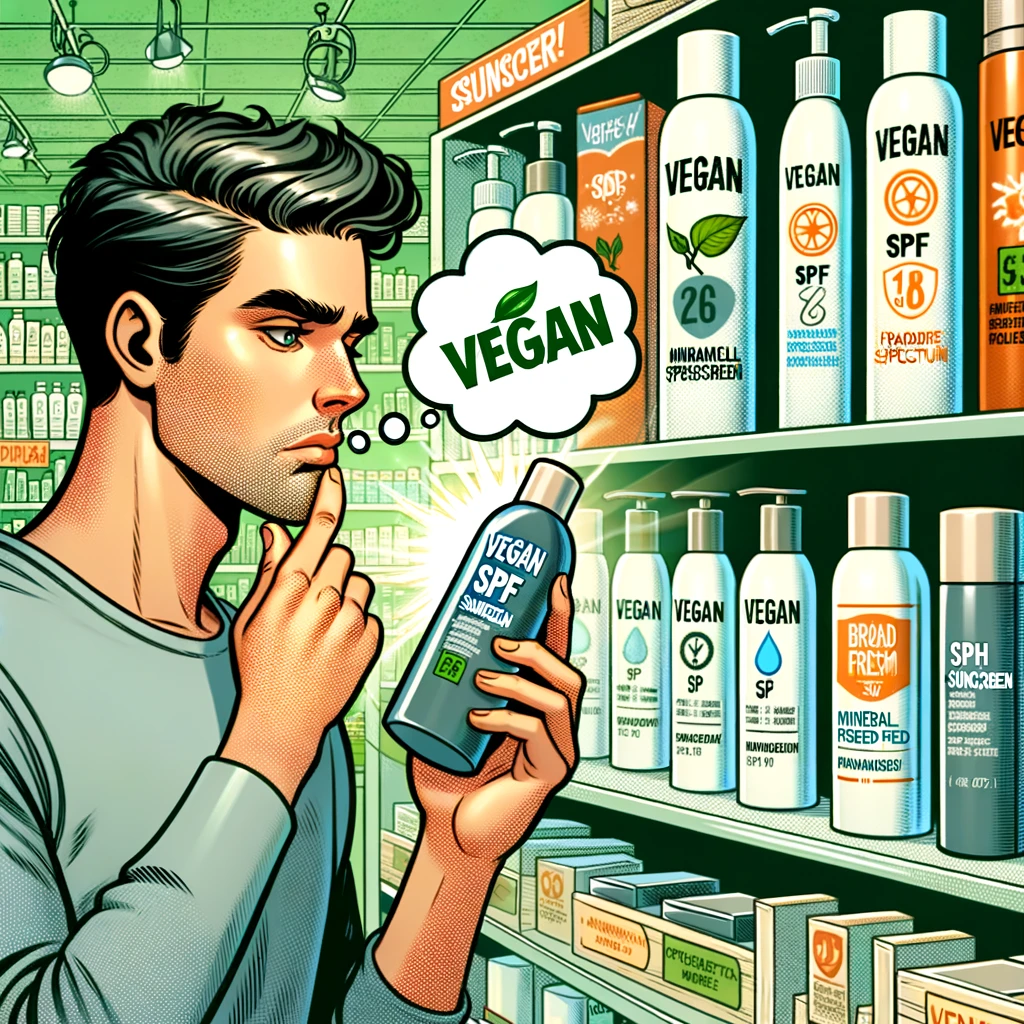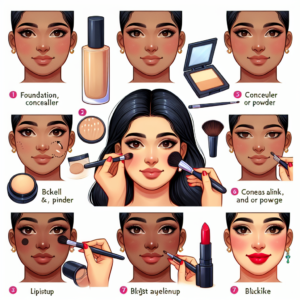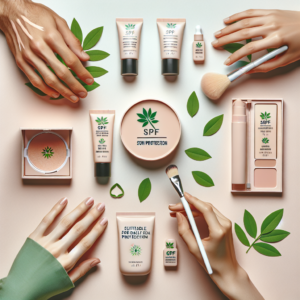
Key Takeaways
- Mineral sunscreens use zinc oxide and titanium dioxide to reflect UV rays away from the skin, making them suitable for sensitive skin.
- Chemical sunscreens absorb UV rays through organic compounds, but can sometimes irritate sensitive skin.
- Vegan SPF products exclude animal-derived ingredients and often avoid harsh chemicals, benefiting sensitive skin.
- Choosing the right sunscreen involves considering skin type, environmental impact, and the balance between protection and comfort.
- Proper application and reapplication of sunscreen are crucial for effective skin protection, especially for sensitive skin.
| Attribute | Mineral Sunscreen | Chemical Sunscreen | Vegan SPF for Sensitive Skin |
|---|---|---|---|
| Main Ingredients | Zinc Oxide, Titanium Dioxide | Avobenzone, Octinoxate, Oxybenzone | Free from animal-derived ingredients, avoids harsh chemicals |
| How It Works | Reflects UV rays away from the skin | Absorbs UV rays and converts to heat | Focuses on gentle, non-irritating protection |
| Ideal For | Sensitive, acne-prone skin | Prefer texture, lighter on skin | Those with sensitive skin and ethical concerns |
| Pros for Sensitive Skin | Low risk of irritation, less likely to clog pores | Lighter, more invisible finish | Free from fragrances, parabens, and harsh chemicals |
| Cons for Sensitive Skin | May leave a white cast, needs frequent reapplication | Can irritate sensitive skin, potential for stinging | – |
| Application Tips | Apply in small dots, blend gently, reapply after swimming/sweating | Let absorb fully, apply 15 mins before sun exposure | Apply gently, especially on the face, reapply every two hours |
| Special Considerations | Look for non-nano zinc oxide | Choose formulas without oxybenzone for less irritation | Hypoallergenic, non-comedogenic, oil-free options for face and body |
| Sensitive Skin Considerations | Less likely to cause skin irritation | May cause stinging sensation or rash | Avoids ingredients likely to cause irritation like oxybenzone |
| Environmental Impact | – | Some ingredients can harm marine life | Often eco-friendly, looks for biodegradable formulas |
Mineral vs Chemical Sunscreen: Breaking It Down
When it comes to protecting sensitive skin from the sun, not all sunscreens are created equal. Understanding the difference between mineral and chemical sunscreens is essential for making an informed choice that keeps your skin safe without causing irritation.
Understanding Mineral Sunscreen
Mineral sunscreens, also known as physical blockers, are like a shield. They sit on top of your skin and reflect the sun’s rays. The main ingredients, zinc oxide and titanium dioxide, are minerals that naturally provide protection against both UVA and UVB rays.
Zinc Oxide and Titanium Dioxide Explained
Zinc oxide and titanium dioxide are the superheroes of mineral sunscreen. They’re effective, gentle, and work immediately upon application. These minerals are also less likely to cause skin irritation, making them a top pick for those with sensitive skin.
Pros and Cons for Sensitive Skin
Mineral sunscreens are generally favored for sensitive skin due to their low risk of irritation. They’re also less likely to clog pores, which is great news for acne-prone skin types. However, they can sometimes leave a white cast on the skin and may need more frequent reapplication, especially after swimming or sweating.
Understanding Chemical Sunscreen
Chemical sunscreens use organic compounds that absorb UV radiation and convert it into heat, which is then released from the skin. These sunscreens tend to be lighter and more invisible on the skin than mineral options.
Common Chemical Filters and Their Functions
Common chemical filters include avobenzone, octinoxate, and oxybenzone. They’re often found in sunscreens that boast a sheer or invisible finish, and they can provide broad-spectrum protection when combined properly.
Pros and Cons for Sensitive Skin
While chemical sunscreens are convenient and often preferred for their texture, they can sometimes irritate sensitive skin. If you’ve experienced a stinging sensation or a rash after applying sunscreen, you might want to consider a switch to a mineral-based formula.
Discovering the Right Vegan SPF for Your Sensitive Skin
Finding a sunscreen that’s both vegan and suitable for sensitive skin can feel like a daunting task. Vegan sunscreens are free from animal-derived ingredients and often omit potentially irritating chemicals, making them a compassionate and gentle choice.
Defining Vegan SPF and Sensitive Skin Care
Vegan SPF means that no animal ingredients are used, and typically, no animal testing has been conducted. For sensitive skin, this also means avoiding fragrances, parabens, and other harsh chemicals that can lead to irritation.
Assessing the Impact of Sunscreen on Sensitive Skin
It’s crucial to assess how your sunscreen affects your skin. If you notice redness, itching, or discomfort, it’s time to reevaluate your choice. Remember, the best sunscreen is the one you’re willing to use consistently and correctly.
Why Vegan SPF Matters for Sensitive Skin
Opting for a vegan SPF isn’t just about ethical choices; it’s about selecting skincare that’s kind to your sensitive skin. Vegan formulas often skip on harsh chemicals and potential allergens that are common in traditional sunscreens. This can be a game-changer for those who struggle with skin sensitivities.
Ingredients to Avoid in Sunscreen for Sensitive Skin
When choosing a sunscreen for sensitive skin, it’s important to know which ingredients might cause trouble. Avoid oxybenzone, octinoxate, and homosalate, which can be harsh on the skin. Also, steer clear of fragrances and preservatives like parabens, which are common irritants.
Benefits of Plant-Based Ingredients
Plant-based ingredients in vegan sunscreens can offer natural soothing and anti-inflammatory properties. Ingredients like aloe vera, green tea extract, and chamomile can help calm the skin while providing protection from the sun’s harmful rays.
Top Choices for Vegan SPF Protection
When it comes to vegan SPF, you have some stellar options that provide effective protection without compromising on gentleness. Here are some top picks that cater to different needs and preferences.
Expert Picks: Mineral Sunscreens
For mineral sunscreens, look for products with non-nano zinc oxide, which ensures the particles aren’t small enough to penetrate the skin. A favorite is the ‘Sunflower and Jojoba Love Sunscreen’, which combines broad-spectrum mineral protection with skin-loving antioxidants.
Expert Picks: Chemical Sunscreens
If you prefer chemical sunscreens, choose one with avobenzone for UVA protection, without oxybenzone to minimize the risk of irritation. The ‘Green Wave Sun Shield’ is a top pick, offering a lightweight formula with hydrating plant extracts.
Applying Sunscreen on Sensitive Skin: Best Practices
Applying sunscreen should be a gentle affair. Start with a small amount and gently pat it onto your skin instead of rubbing. Ensure you cover all exposed areas, and don’t forget easily missed spots like the ears and the back of the neck.
Tips for a No-Sting Application
To avoid that dreaded sting, apply sunscreen on dry skin, at least 15 minutes before heading outdoors. If you’re using a mineral sunscreen, apply it in small dots across the face and blend gently to avoid a white cast. For chemical sunscreens, let them absorb fully to avoid any potential eye irritation.
- Apply sunscreen 15 minutes before sun exposure.
- Use gentle patting motions, especially on the face.
- Reapply every two hours, or after swimming or sweating.
- Choose a higher SPF for prolonged outdoor activities.
- Don’t forget to protect your lips with an SPF lip balm.
Remember, sunscreen isn’t just for sunny days. UVA and UVB rays can penetrate clouds and even windows, so make it a part of your daily routine, regardless of the weather.
Maintaining Skin Health with Proper Sunscreen Usage
Consistent use of sunscreen can prevent premature aging and reduce the risk of skin cancer. For those with sensitive skin, it’s crucial to choose a sunscreen that protects without causing additional issues. By following these guidelines, you can enjoy the sun safely and keep your skin healthy and happy.

What to Look for When Shopping for Vegan SPF
When you’re on the hunt for a vegan SPF, you’re looking for more than just sun protection. You’re also looking for a product that aligns with your values and caters to your sensitive skin without causing harm or discomfort. Here’s what to keep in mind:
Understanding SPF Ratings and Broad-Spectrum Protection
SPF stands for Sun Protection Factor, and it measures how well a sunscreen will protect skin from UVB rays—the kind that cause sunburn and contribute to skin cancer. Broad-spectrum protection means that the product also shields against UVA rays, which can prematurely age your skin. Always aim for an SPF of 30 or higher and broad-spectrum coverage for the best protection.
For sensitive skin, it’s not just about the level of protection, but also how the product achieves it. Vegan SPF options tend to use ingredients that are less harsh and more natural, which is a significant benefit for those with delicate skin.
Identifying Hypoallergenic Formulas
Hypoallergenic is a term used to describe products that are less likely to cause allergic reactions. Although not regulated by the FDA, this label can still be a useful guide when shopping for sunscreen. Look for products that are free from common allergens like fragrances, parabens, and phthalates.
Spotting Non-Comedogenic and Oil-Free Options
If you have sensitive skin that’s also prone to breakouts, non-comedogenic and oil-free sunscreens are your best friends. These products are formulated to not block pores. They can help prevent acne while protecting your skin from the sun’s harmful rays.
Frequently Asked Questions (FAQ)
As you integrate vegan SPF into your daily routine, you might have a few questions. Let’s tackle some of the most common queries to ensure you’re fully informed and ready to make the best choices for your skin.
How Often Should I Reapply Vegan SPF?
You should reapply sunscreen every two hours, or more often if you’re swimming or sweating a lot. Even if your sunscreen is water-resistant, it’s crucial to reapply to maintain protection. And remember, a little goes a long way—use enough to generously cover all exposed skin.
Can Mineral Sunscreens Cause Acne Breakouts?
Mineral sunscreens are often recommended for sensitive or acne-prone skin because they sit on the surface and are less likely to cause irritation. However, everyone’s skin is different. If you find that a particular product is causing breakouts, try another brand or formula. Non-comedogenic options are usually a safe bet.
Also, make sure you’re cleansing your skin thoroughly at the end of the day to remove any sunscreen residue that could clog pores.
What Does Broad-Spectrum Mean for Sensitive Skin?
Broad-spectrum sunscreens protect against both UVA and UVB rays. For sensitive skin, this is particularly important because UVA rays can penetrate more deeply and cause more subtle, long-term damage. A broad-spectrum sunscreen will ensure you’re protected from all angles.
Are Vegan Sunscreens Eco-Friendly?
Many vegan sunscreens are eco-friendly, as they avoid ingredients that can harm marine life, such as oxybenzone and octinoxate. However, not all vegan products are automatically eco-friendly. Look for sunscreens with biodegradable formulas and sustainable packaging to ensure you’re making an environmentally conscious choice.
How Do I Choose the Right Vegan SPF for My Face vs. Body?
For your face, you’ll want a sunscreen that’s specially formulated to be non-irritating and non-comedogenic. It should be lightweight and blend easily under makeup if you wear it. For your body, you can go with a formula that’s a bit heavier, as long as it doesn’t feel too greasy. Just make sure that whatever you choose is effective and feels good on your skin—that way, you’ll be more likely to use it every day.




